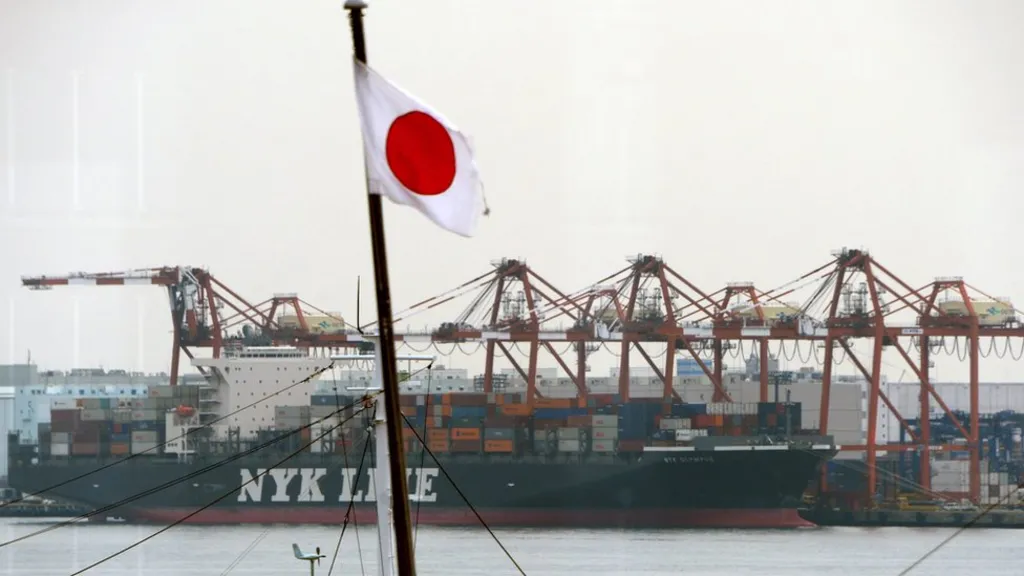Introduction:
In a significant advancement for maritime technology, Japan has successfully launched its first fully autonomous cargo ship, marking a major milestone in the future of global shipping. The vessel, which operates without human intervention, showcases Japan’s ongoing commitment to embracing cutting-edge technology in its maritime sector. This development not only sets a new standard for shipping safety and efficiency but also signals the future of autonomous vessels on the world’s oceans.
The launch of this autonomous cargo ship, named Mayflower Autonomous Ship (MAS), represents a leap forward in maritime automation, with potential implications for the global shipping industry. With the advent of autonomous ships, shipping companies can look forward to reduced operational costs, increased safety, and a reduction in human error, which has historically been a contributing factor to accidents at sea.
The Technological Leap Forward
Japan’s fully autonomous cargo ship, which was launched in early 2025, is equipped with a suite of sophisticated technologies, including artificial intelligence (AI), machine learning, and advanced sensor systems. These innovations enable the vessel to navigate open waters and adjust its course without the need for human intervention. The ship uses a combination of radar, LIDAR, and cameras to detect obstacles, making it capable of operating in a variety of maritime environments.
The vessel is powered by a hybrid system combining clean energy sources to minimize its environmental impact. The combination of AI and green technology underscores Japan’s commitment to reducing the shipping industry’s carbon footprint, which is responsible for a significant portion of global greenhouse gas emissions.
According to industry experts, the ship’s navigation system can analyze data in real-time and adjust its course to avoid collisions and navigate through various sea conditions. This technology, which also includes automatic docking, could be integrated into larger fleets of cargo ships in the coming years, revolutionizing the way goods are transported across the globe.
Why Autonomous Ships Matter
The shipping industry has long been a backbone of global trade, with more than 90% of the world’s goods being transported by sea. However, traditional cargo vessels have often been susceptible to accidents caused by human error, inclement weather, or mechanical failure. With an autonomous vessel, the potential for these risks to be minimized is immense. Automated systems can operate around the clock without fatigue, providing a level of reliability that has previously been unattainable.
Additionally, the cost-saving potential of autonomous cargo ships is significant. With automation, shipping companies can reduce their reliance on human labor, lower insurance costs, and improve efficiency. Moreover, the environmental benefits cannot be overstated. By reducing human-operated vessels, it is possible to optimize fuel usage, lower emissions, and adhere to more stringent environmental regulations.
Autonomous cargo ships could also play a role in mitigating the global shipping industry’s supply chain disruptions. By eliminating the need for human crew members on board, vessels can potentially operate more flexibly, with fewer delays, and adapt to changing conditions more efficiently.
The Role of Japan’s Maritime Industry
Japan has long been a pioneer in the development of maritime technology. Its maritime industry is one of the largest and most advanced in the world. The country’s commitment to automation in shipping is not new, as Japan has been researching autonomous shipping systems for years.
In fact, the launch of Mayflower Autonomous Ship is not the first time Japan has led the charge in autonomous maritime technology. Earlier, the country introduced smaller autonomous vessels used for specific purposes such as port surveillance and maintenance. The success of these smaller autonomous vessels paved the way for Japan to build the first fully autonomous cargo ship.
The Japanese government has been actively supporting the country’s maritime advancements by providing funding and incentives to the shipping industry. As a result, Japan is positioned to remain at the forefront of the autonomous shipping sector. The Mayflower Autonomous Ship is expected to be the first in a new generation of autonomous vessels that will be used for both domestic and international shipping routes.
Global Impact and the Future of Autonomous Shipping
The launch of Japan’s autonomous cargo ship is not just a breakthrough for the country but also a pivotal moment for the global shipping industry. While many other countries, including the United States and the United Kingdom, are also working on autonomous shipping projects, Japan’s successful deployment is a step ahead.
Autonomous vessels are expected to become more common over the next decade, with many experts predicting that they could comprise up to 15% of the global shipping fleet by 2030. As countries around the world continue to invest in autonomous maritime technology, the future of shipping is likely to be far more automated, efficient, and sustainable.
Furthermore, the technology used in these ships has the potential to expand beyond maritime applications. AI-driven systems and sensor technology developed for autonomous shipping could eventually be used in other industries, including autonomous cars, drones, and logistics. This development could foster broader innovations in automation, driving further technological advancements across sectors.
Conclusion
Japan’s launch of its first fully autonomous cargo ship marks a historic milestone in the world of maritime technology. As the shipping industry evolves to embrace more automation, the benefits of improved safety, efficiency, and sustainability are becoming increasingly clear. The successful deployment of Japan’s Mayflower Autonomous Ship signals that the future of global shipping could be much closer than expected.
With countries like Japan leading the charge, the future of shipping promises to be more technologically advanced and environmentally friendly. As autonomous vessels become an integral part of the global shipping fleet, the potential for transforming how goods are transported across the seas is truly groundbreaking.
